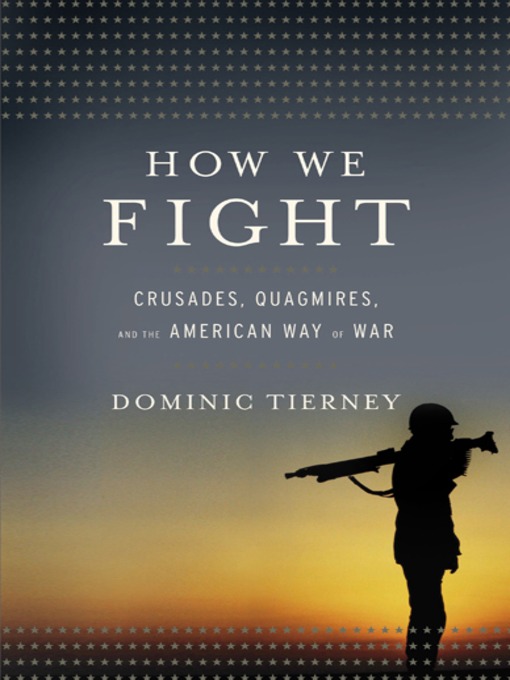
How We Fight
Crusades, Quagmires, and the American Way of War
- اطلاعات
- نقد و بررسی
- دیدگاه کاربران
نقد و بررسی

September 15, 2010
Provocative analysis of why Americans love some wars and hate others.
Nearly everyone considers the wars in Iraq and Afghanistan quagmires, writes Tierney (Political Science/Swarthmore Coll.; FDR and the Spanish Civil War: Neutrality and Commitment in the Struggle that Divided America, 2007, etc.), yet both began with widespread support. This is predictable, he argues. The Founding Fathers proclaimed America the hope of the world, and since then we take for granted that all sensible people yearn for our freedom. This sense of mission carries over to wars which become righteous crusades such as the Civil War and two world wars. Crusades work against organized governments, but not where central authority is feeble, and we often take up "nation building"—fighting to establish a stable state, often against local opposition. With no Satan to vanquish (whether Hitler or Hussein), we lose patience, an attitude made worse by leaders—from McKinley to Bush II—who invariably declare that these newly liberated people are eager to love their neighbors and hold elections. Tierney points to the American efforts in Kosovo as a success. In fact, many interventions labeled fiascos (Lebanon, Somalia) saved thousands of lives. Our wildly mishandled quagmire in Iraq is winding down with modest success, and Afghanistan is more prosperous and free than in 2001 despite the growing feeling that honest government is a forlorn hope. Absence of anarchy and mass murder—not free elections—is a reasonable goal for nations with no tradition of good government; even this modest achievement requires more tolerance for frustration than most Americans possess.
Despite the obligatory optimistic coda, most readers of this lucid and enlightening yet discouraging insight into America's impatience with nation building will not feel encouraged.
(COPYRIGHT (2010) KIRKUS REVIEWS/NIELSEN BUSINESS MEDIA, INC. ALL RIGHTS RESERVED.)

Starred review from October 15, 2010
Clausewitz famously opined that the people are as important as the government and the armies. Tierney (political science, Swarthmore Coll.) describes how American popular attitudes toward war are steered by culture, conflict, and perceived outcomes. The crusade vs. quagmire metaphor (i.e., invading to overthrow a dictator, as compared with on-the-ground nation building) has been in use since the United States first fought in the Philippines at the turn of the 20th century. Tierney argues that those alternative models have exemplified the way Americans think of war and foreign policy ever since. His work here will be a useful addition to the literature of culture and war, and will be particularly of interest to academia and military scholars.
Copyright 2010 Library Journal, LLC Used with permission.

November 1, 2010
Comparing public opinion about Americas wars from the Civil War to the continuing Iraqi and Afghan conflicts, Tierney synthesizes similarities into a perspective on the American way of war. He posits that socially deep-seated beliefs in liberalism and religion summon Americans to war, but that the catharsis of overthrowing enemies sets Americans up for disillusionment when foes reject the self-evident blessings of liberal democracy. Tierneys first example of the crusading/nation-building pattern is not Vietnam but the war that inspired The Battle Hymn of the Republic. Its righteously militant lyrics exemplify the ideals and wrath that motivated the North; its popular adaptation in subsequent wars is one detail of crusading continuity among many that Tierney finds. Ditto Reconstruction: its the template of American nation building in that unrealistic aspirations to transform the South collapsed in public weariness with the effort. To break the crusading/nation-building cycle, Tierney advises a return to the limited-war attitudes of the Founders. Writing in colloquial style, this college professor accessibly frames questions arising from Iraq and Afghanistan about why victories have often been followed by occupations.(Reprinted with permission of Booklist, copyright 2010, American Library Association.)




دیدگاه کاربران